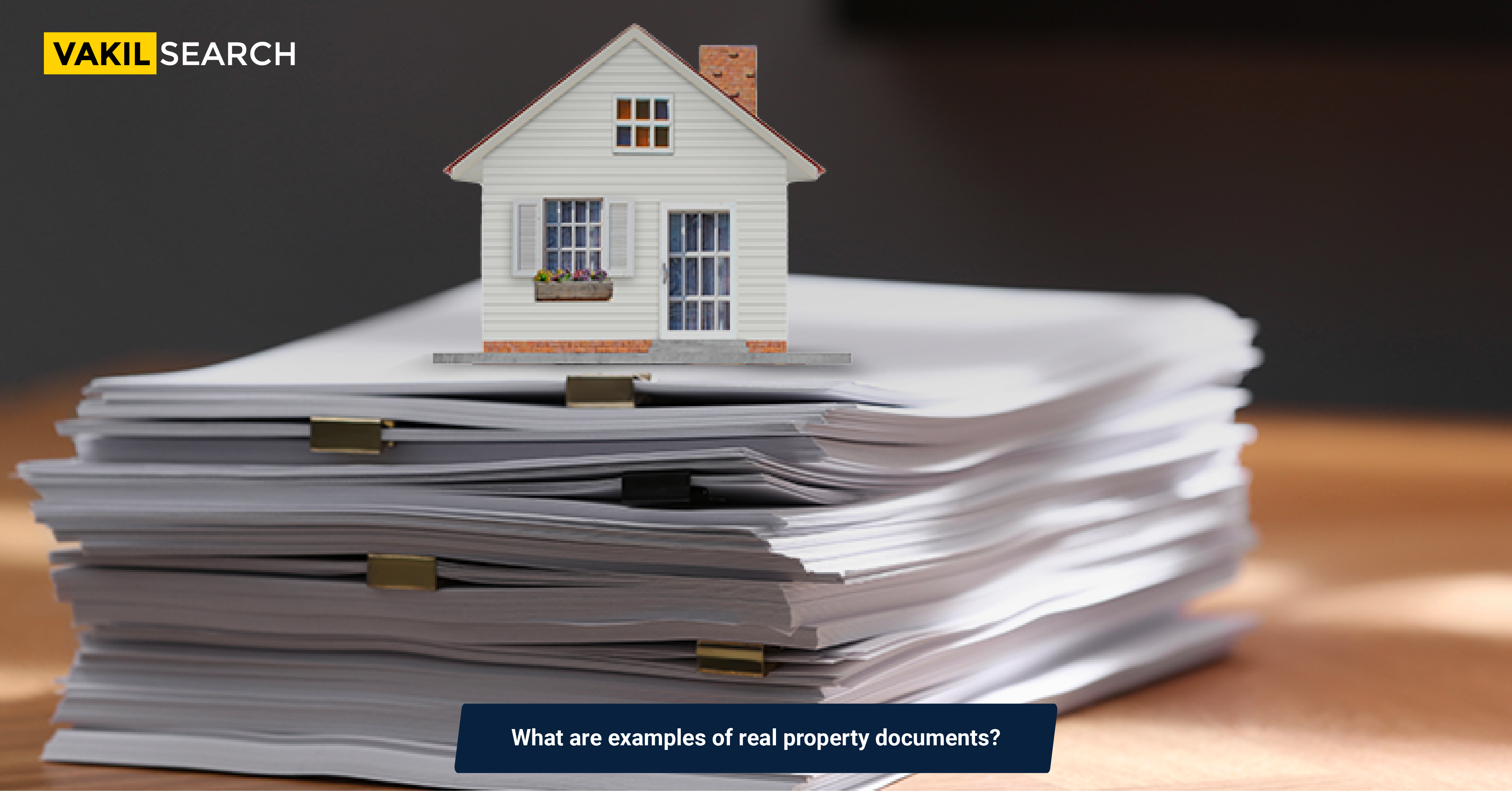New to real estate investing? Discover the significance of real property documents in India and their legal implications.
When it comes to real estate transactions in India, a crucial aspect that often goes overlooked is the documentation. These documents play a pivotal role in safeguarding your property interests and ensuring transparency in real estate dealings.
In this article, we will delve into the various examples of real property documents in India, their purpose, significance, and the legal implications they entail.
-
Sale Deed:
A Sale Deed, also known as a Conveyance Deed, is one of the most fundamental real property documents in India. This document serves as legal proof of the property’s transfer from the seller to the buyer. It includes essential details such as property description, sale consideration, and the identities of both parties involved. The Sale Deed is signed by both the buyer and the seller in the presence of witnesses and is registered with the local sub-registrar office.
Significance: A Sale Deed establishes the rightful ownership of the property and is vital for property title verification during transactions.
Legal Implications: Failing to register a Sale Deed can result in disputes over property ownership and may render the transaction invalid.
-
Title Deed:
A Title Deed also referred to as a Property Title Document, provides a comprehensive history of property ownership. It traces the property’s ownership from its first owner to the current one. This document ensures that the seller has legal rights to transfer the property.
Significance: A Title Deed is essential to confirm that the seller has a clear and marketable title to the property, preventing future disputes.
Legal Implications: Incorrect or incomplete Title Deeds can lead to complications in property transactions, including legal challenges.
-
Encumbrance Certificate:
An Encumbrance Certificate is a document that verifies that a property is free from any monetary or legal liabilities. It is crucial to ensure that the property you intend to purchase is free from any pending dues, mortgages, or legal disputes.
Significance: An Encumbrance Certificate provides peace of mind to buyers, assuring them that the property is free from encumbrances.
Legal Implications: Purchasing a property without obtaining an Encumbrance Certificate can result in unforeseen financial liabilities.
-
Property Tax Receipts:
Property tax is a recurring expense for property owners. Keeping records of property tax payments is essential. Property Tax Receipts serve as evidence of tax payments and help in establishing legal ownership.
Significance: Property Tax Receipts are crucial to prove that you are a responsible property owner, complying with local tax regulations.
Legal Implications: Non-payment of property taxes can result in penalties and may even lead to the sale of your property by the local authorities.
-
Occupancy Certificate:
An Occupancy Certificate is issued by the local municipal authority after a property is deemed fit for occupancy. It ensures that the construction complies with local building codes and regulations.
Significance: An Occupancy Certificate is essential to legally occupy a property and avoid potential legal issues related to unauthorized construction.
Legal Implications: Occupying a property without an Occupancy Certificate can result in legal action and eviction notices.
-
Power of Attorney (POA):
A Power of Attorney is a legal document that authorizes an individual to act on behalf of another person in property transactions. It is commonly used when the property owner cannot be present for the transaction.
Significance: A Power of Attorney simplifies property transactions, especially for NRIs and individuals residing abroad.
Legal Implications: Misuse of a Power of Attorney can lead to fraudulent property dealings, so it should be granted carefully.
-
Rental Agreement:
For landlords and tenants, a Rental Agreement is vital. It outlines the terms and conditions of the rental arrangement, including the rent amount, duration, and responsibilities of both parties.
Significance: A well-drafted Rental Agreement protects the rights of both landlords and tenants, minimizing conflicts.
Legal Implications: Failure to adhere to the terms of the Rental Agreement can result in eviction or legal disputes.
The Takeaway
In conclusion, understanding and maintaining the right real property documents in India is essential for a hassle-free and legally sound real estate transaction. These documents not only establish ownership but also safeguard your property interests, prevent disputes, and ensure compliance with legal regulations.
For expert assistance in RERA registration and complaint filing, consider Vakilsearch’s services and simplify your real estate journey. Reach out to our experts to know more!
FAQs:
1. What is the importance of registering real property documents in India?
Registering real property documents in India is crucial as it legally establishes property ownership, prevents disputes and ensures the property's authenticity and marketability.
2. How can Vakilsearch assist with RERA registration and complaint filing?
Vakilsearch offers comprehensive services for RERA registration, ensuring compliance with real estate regulations. Our experts also assist in filing complaints with RERA authorities, simplifying the process for homebuyers.
3. What happens if I don't possess a valid Occupancy Certificate for my property?
Utilizing a property without an Occupancy Certificate can lead to legal consequences, including fines and potential eviction. It's essential to obtain this certificate before occupying any property.
Read More :


